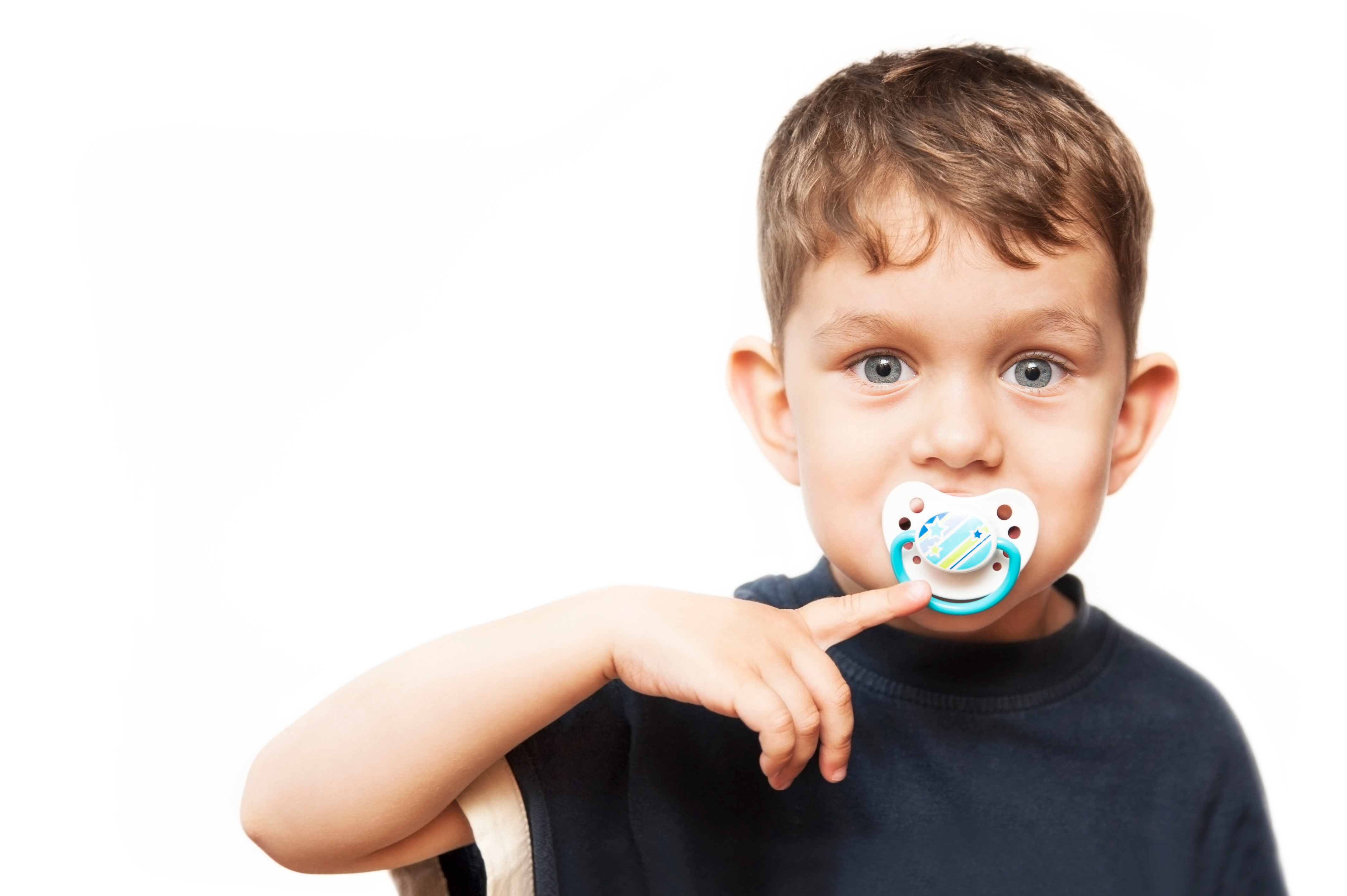Pediatric Dentist Recommendations for Kids and Pacifiers

While using a pacifier to soothe a baby is completely normal, a pediatric dentist generally should monitor this habit to maintain a child's oral health. Parents should consistently update the dentist on a child's pacifier use at every checkup. Understanding how pacifier use can affect dental health can help parents make the right decision about when to make changes.
The impact of pacifiers on dental and overall health
Pacifiers can be helpful when it comes to soothing a tired or unhappy baby. Proper pacifier use can be beneficial in other ways, but there are downsides if a child uses it excessively or past a certain age.
The benefits
Most infants rely on the act of sucking as their main source of comfort. Introducing pacifiers allows babies to learn how to self-soothe without the aid of a parent or bottle. This often means babies are less fussy and are able to fall asleep more easily and independently. Pacifiers are usually a better option than finger sucking because eventually the pacifier can be completely taken away to break the habit. Some studies suggest that pacifiers can even help reduce the risks of Sudden Infant Death Syndrome.
The potential risks
While pacifiers can make life easier for parents of newborns, using these items the wrong way can put a child at risk for dental and health problems. Without frequent sterilization, there is a chance that more bacteria and germs could transfer to the teeth and gums or travel inside the body. Prolonged pacifier use increases a child's chances of developing numerous dental issues, including:
- Development of an overbite
- Malocclusion
- Alignment issues
- Increased risks for tooth decay
- Abnormal changes to the roof of the mouth
- Speech issues
Dipping a pacifier in sweet substances can also contribute to excess tooth decay.
When to stop pacifier use
Once children reach the age of one, sucking is no longer one of the sole means of self-soothing. At this point, pacifier use can gradually be replaced with other methods when a baby or young child needs comfort. A pediatric dentist is likely to recommend that parents try to start weaning the child from their pacifier at this age, although any time between the ages of two and four is generally considered acceptable when it comes to dental health.
Once permanent teeth start to come in, around the age of six, pacifier use can become a serious problem. In addition to the negative impact it can have on a child's social development, using a pacifier at this age can lead to a host of oral health problems. While it can be challenging to transition a child away from pacifier use, it is important to break the habit by age four at the latest to prevent complications that will likely result in extra dental work down the road.
Conclusion
Using pacifiers during infancy is considered safe for a baby's health and can even be beneficial. However, it is important to use pacifiers with care and following the advice of a pediatric dentist and to start weaning the baby from use at the right age to prevent dental problems. This can also help young children develop stronger self-soothing techniques, fostering a healthy sense of independence.
Request an appointment here: https://alexoldtowndental.com or call Alexandria Old Town Dental at (703) 763-1078 for an appointment in our Alexandria office.
Check out what others are saying about our dental services on Yelp: Pediatric Dentist in Alexandria, VA.
Related Posts
Regular pediatric dental checkups can help determine if your child needs a dental filling. Kids tend to eat more carbohydrate-rich foods. The starches and sugars tend to feed bacteria in the mouth, making them produce more acids. This results in weak enamel and cavity formation. A dental filling can restore your child’s teeth. If you…
A children's dentist can help set your child up for a lifetime of healthy smiles. Taking children to a dentist for preventative treatments that support their oral health is crucial. Checkups, cleanings, fluoride treatments, and dental sealants are among the most important tools a dentist uses to help keep your child's mouth healthy. Good oral care…
A common pediatric dental issues that parents and children face is thumb sucking. While it's normal for very young children, this practice can be problematic if it continues into the preschool years and beyond. Fortunately, there are ways to eliminate the habit for better dental and overall health.Thumb sucking may seem harmless and even endearing…
A children's dentist typically advises parents to care for their baby's teeth. Some people believe that this is unnecessary because the teeth will fall out eventually. But the baby teeth play a crucial role in the child's development, so it is necessary to take care of them. These teeth are still prone to decay, getting…
